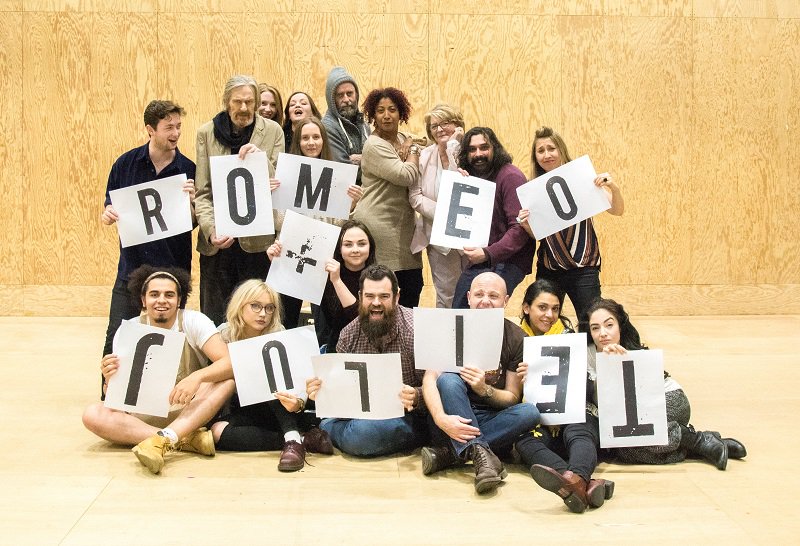Romeo & Julius: Nick Bagnall on directing a gay version of Romeo & Juliet
By Ross Semple

We felt it was important to do a classic title with the Everyman Rep Company. I chose Romeo & Juliet because I wanted to be able to integrate our Young Everyman Playhouse with the main Everyman Company in a really significant and meaningful way. I also have a track record for reimagining Shakespeare in different ways for productions at the Everyman and for Shakespeare’s Globe.
I think audience members will be excited to see the radical reworking of the script that I’ve done. It’s reduced to around 2 hours which allows the text to become more sharp and pacey. We’ve got rid of all the fluff and just concentrated on the young people. Another element that will help elevate this production is the music which will all be performed live and ranges from indie and dub step to funeral laments.
Because the play will be contemporary we’ve swapped the swords of the original for knives and I think the violence that goes along with that will excite people. We start the play with a big 50-man mass brawl which really sets the scene and should look spectacular. I’ve taken away most of the nobility in the play so the Montagues are travellers and Romeo is a bit of a drug-dealing scallywag with a big gang. The character of Lord Capulet has been cut so that Lady Capulet is the matriarch in that family and by putting some of his words in her mouth it transforms her into a controlling powerful woman. What I’m trying to convey by making those changes is show that it is a play about power not about wealth.

While reworking the script I’ve also chosen to swap the gender of some of the parts, casting Juliet as a man (Julius) might shock the purists but I hope it will illuminate the play more. I think it ignites some relevant, universal themes. In this reading of the play Romeo doesn’t know he’s a gay man until he meets Julius so that’s his first homosexual encounter. It unlocks the play in a rather extraordinary way.
When you look at Romeo’s narrative he’s in love with Rosaline on page 1 and then by page 7 he’s fallen in love with someone else. In a traditional version of the play I find it very difficult to believe him because I don’t think there’s any inner struggle for his character. By placing it as two men this creates an inner turmoil for Romeo which he has to embrace fully and it lets the play become a lot more immediate. He falls in love with Julius and we go on a journey with him as he comes to terms with that which makes it a more believable love story.
In this play we’re going to be dealing not just with sexuality but with race and arranged marriages as well. Even in this day and age there are young gay men, particularly with certain cultural backgrounds, who are being disowned, tortured, murdered and banished by their families for being gay so this is still a pertinent issue. I think the changes that we’ve made to the text and how we’re approaching the play makes it exciting, sexy and most of all relevant to a young, modern audience today.
My version of Romeo & Juliet is set here and now in Liverpool but its context is universal. It is a play about family, loyalty, sexuality, suicide and the lack of hope and opportunity for some of these young people in our society today who live by the laws of gangs rather than the conventional ones. It allows me to show them in a much more complex light than we usually see.
Words by Nick Bagnall
